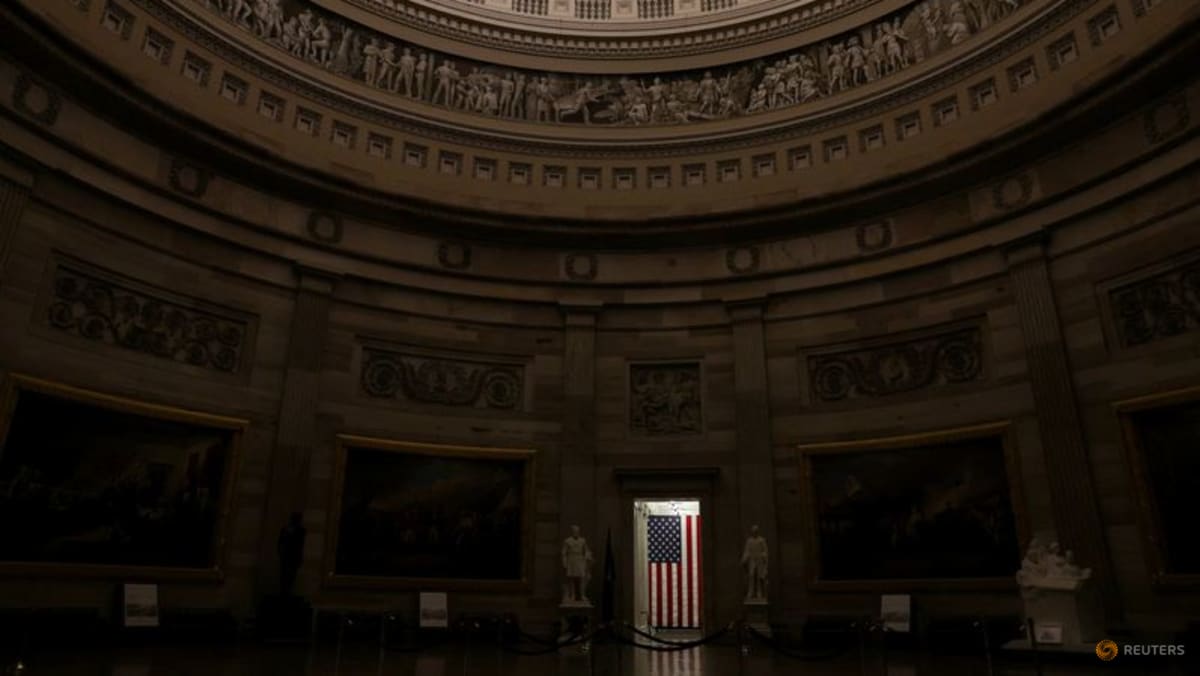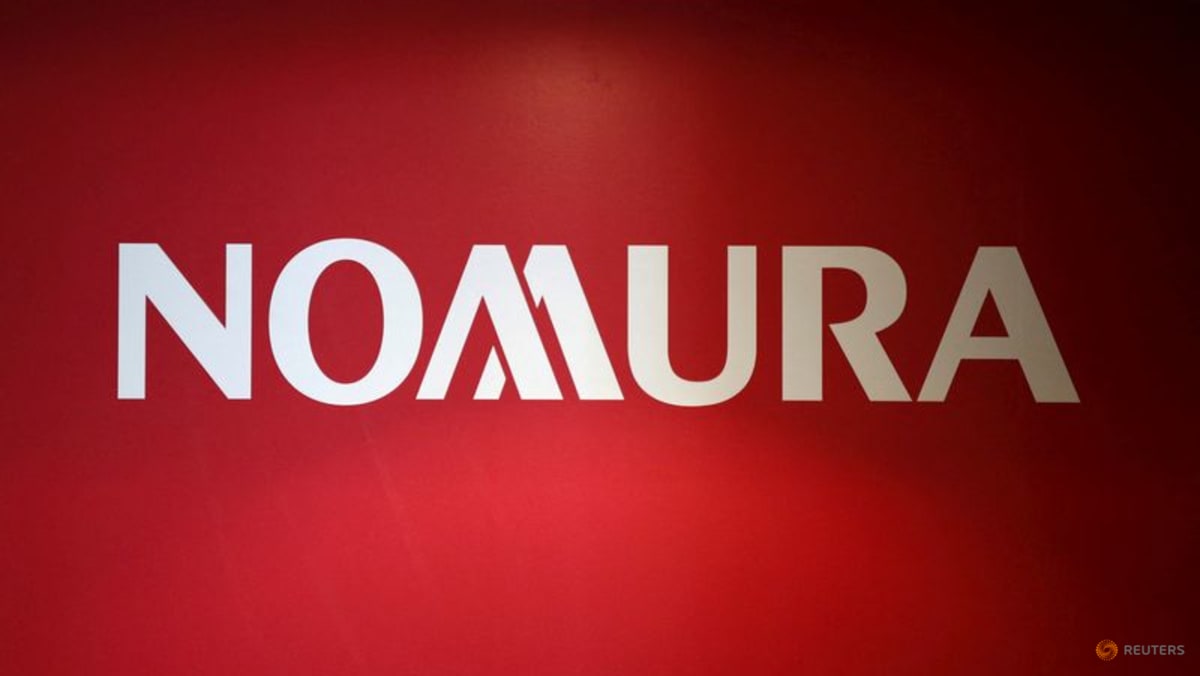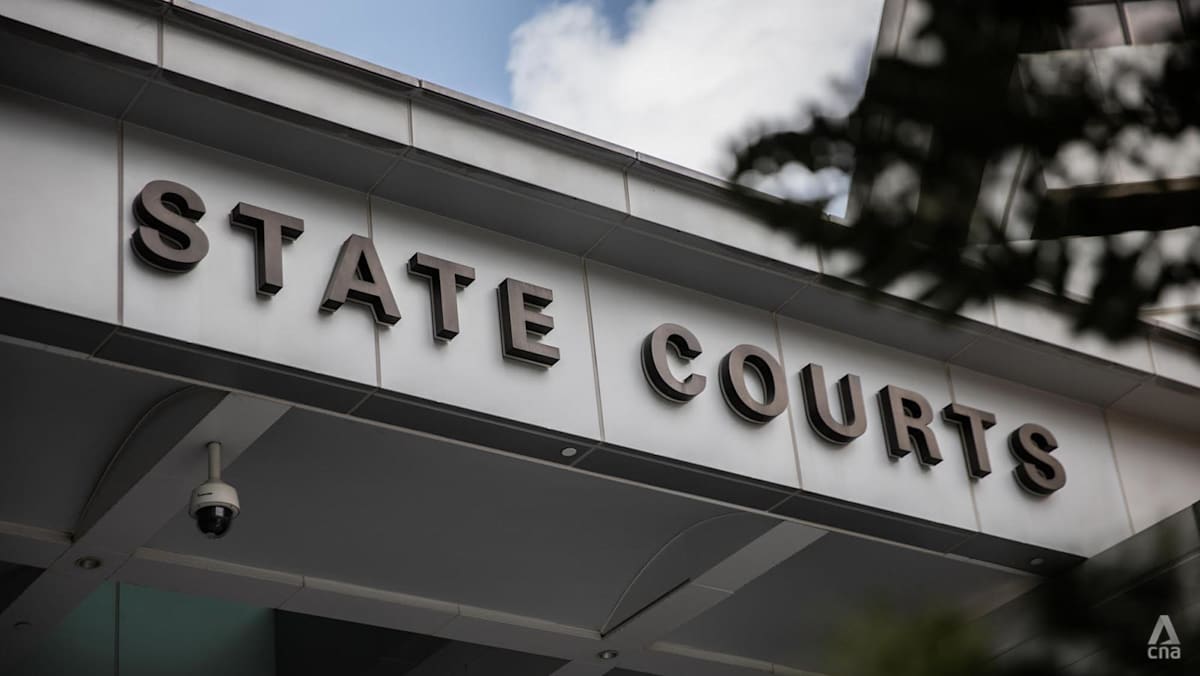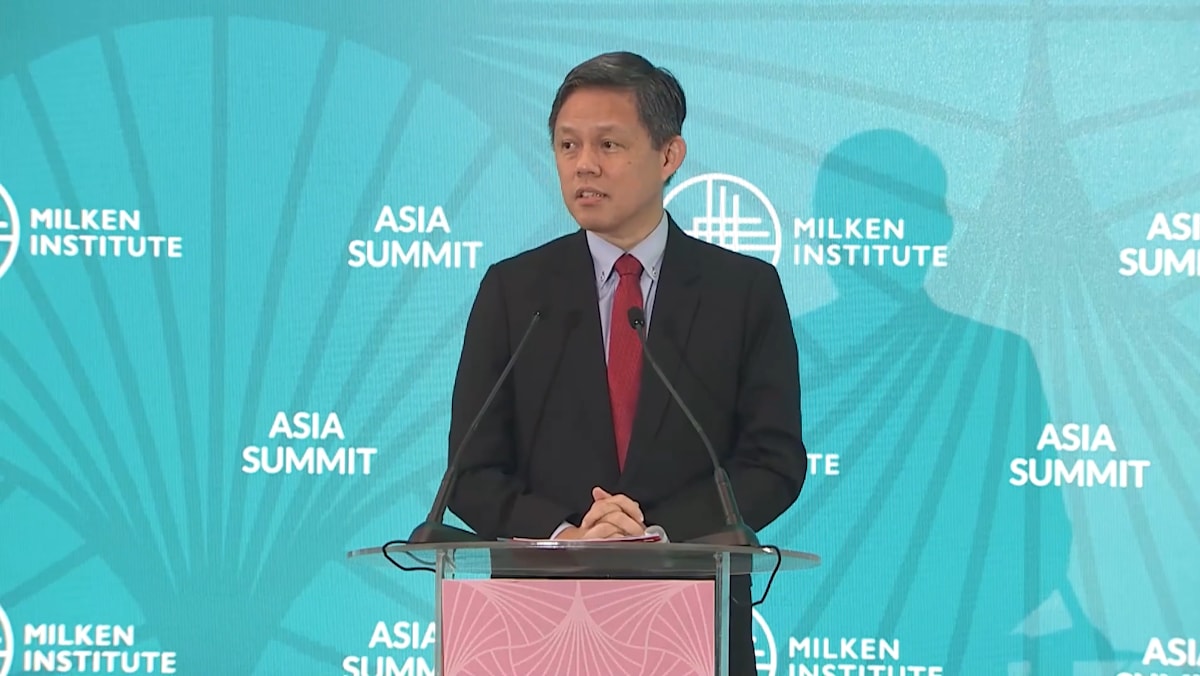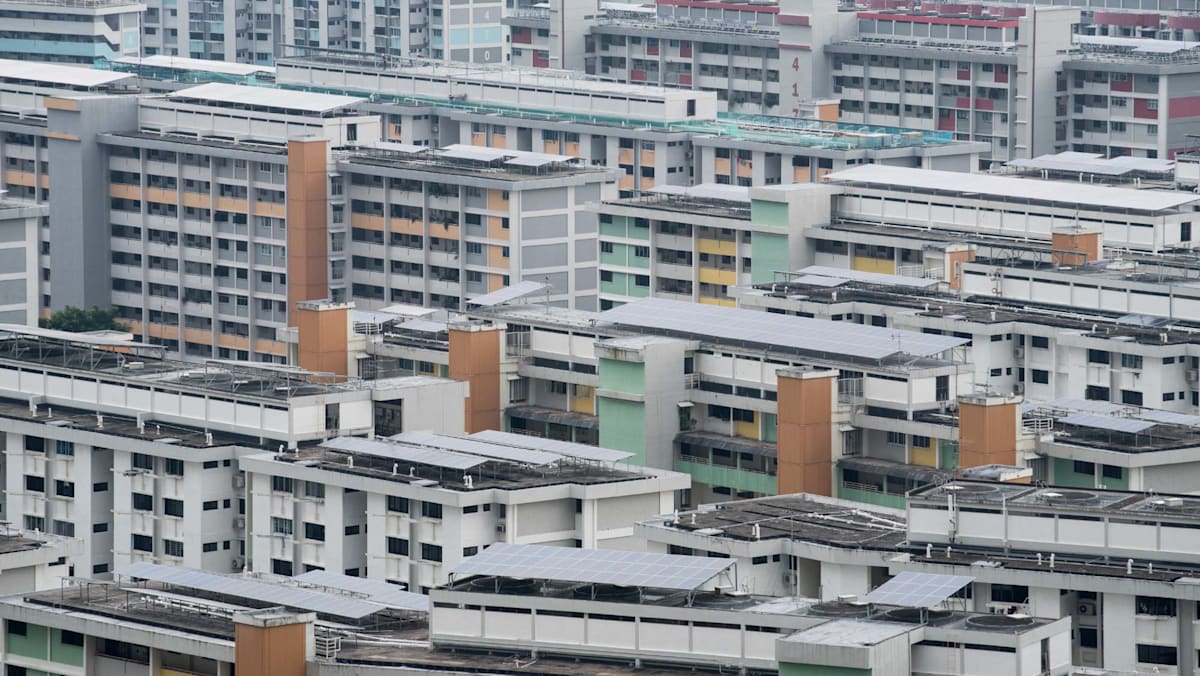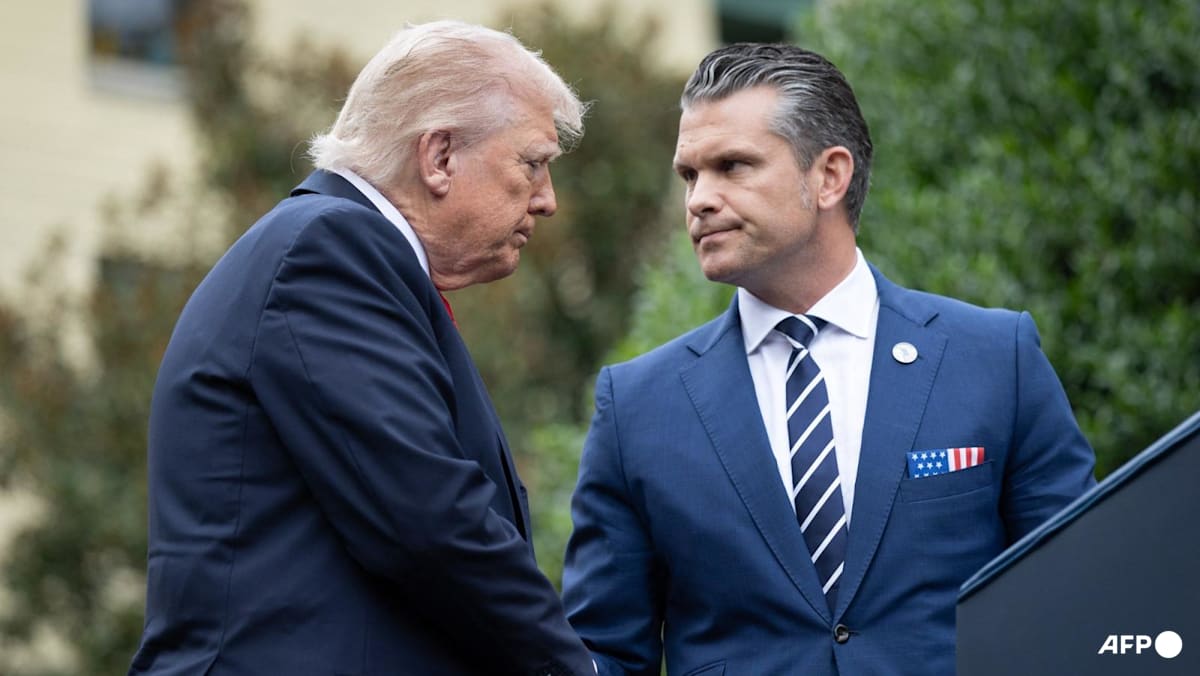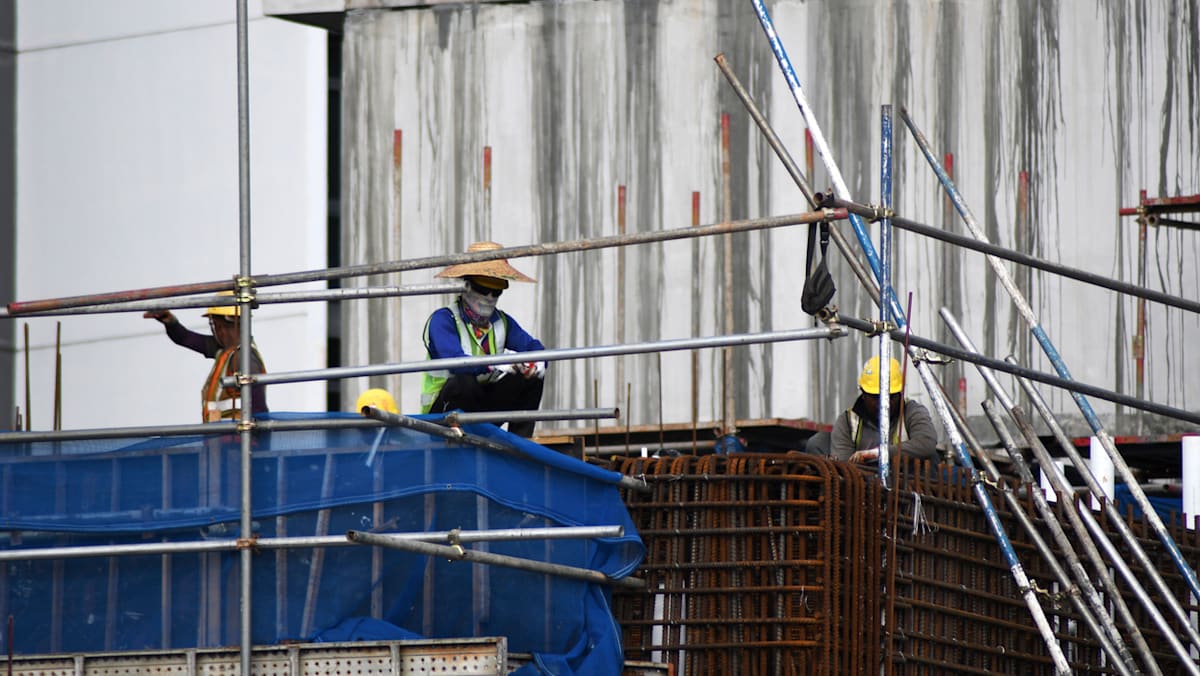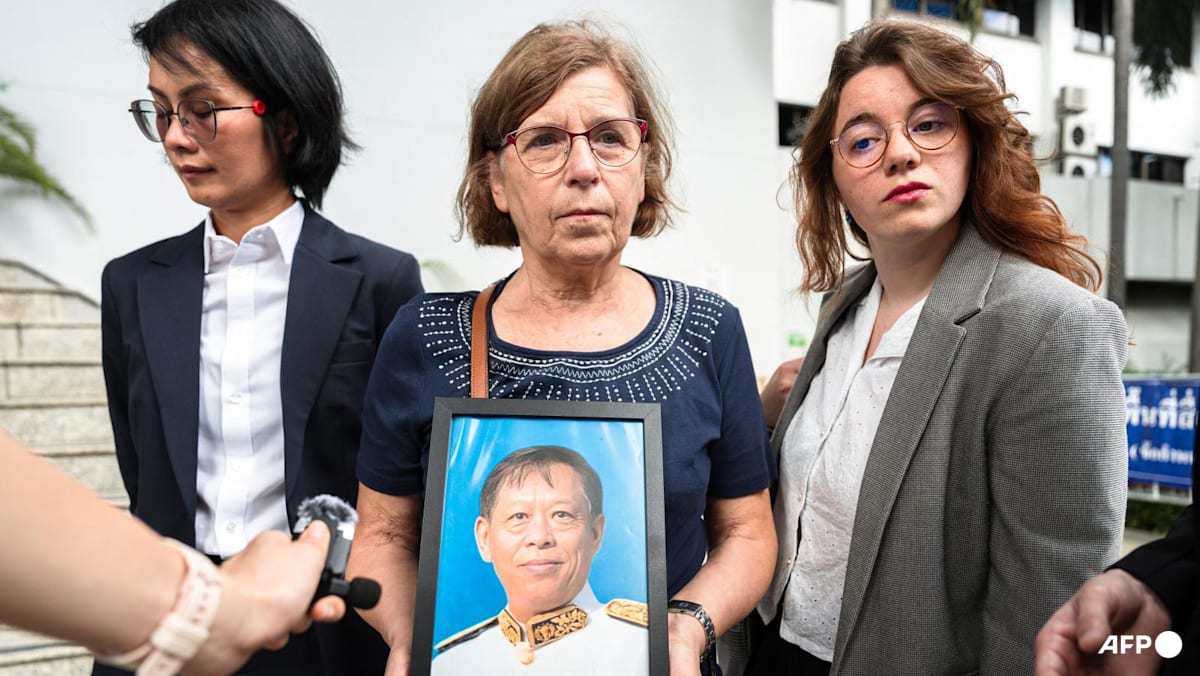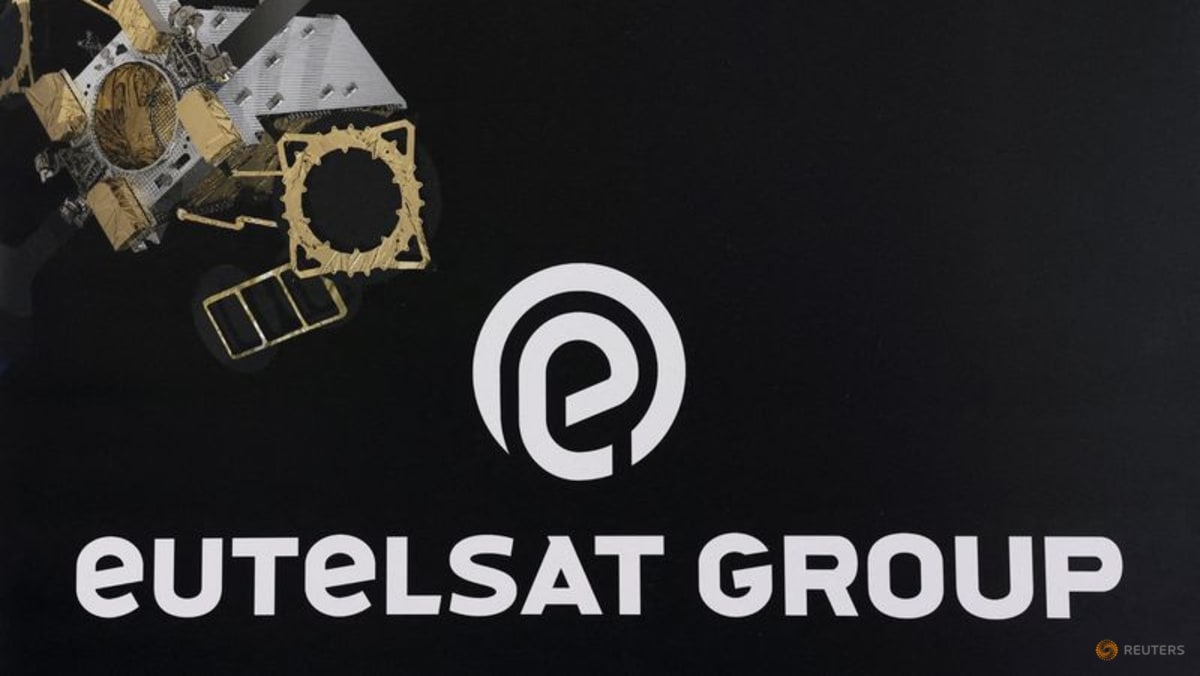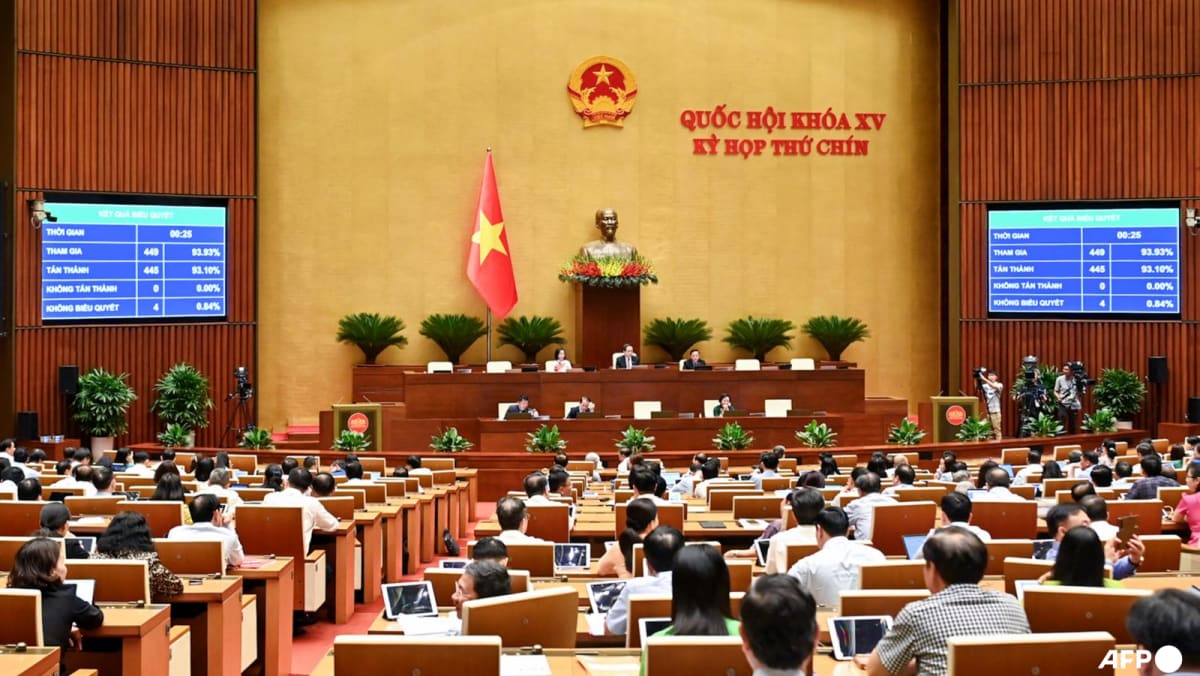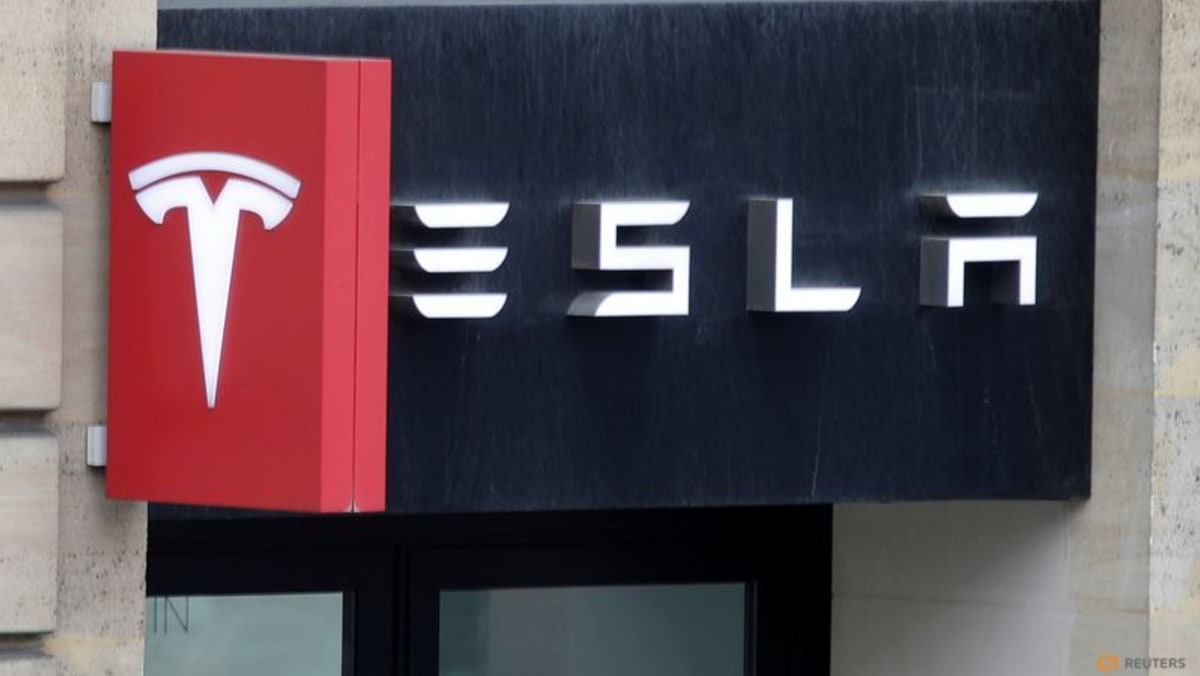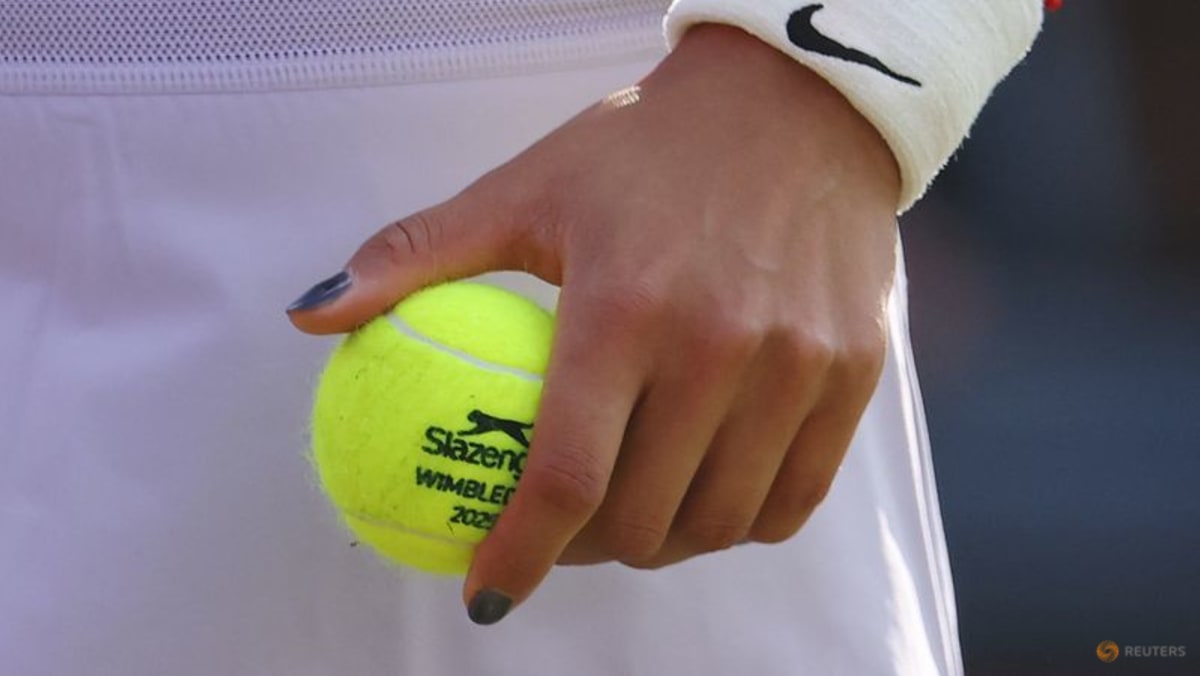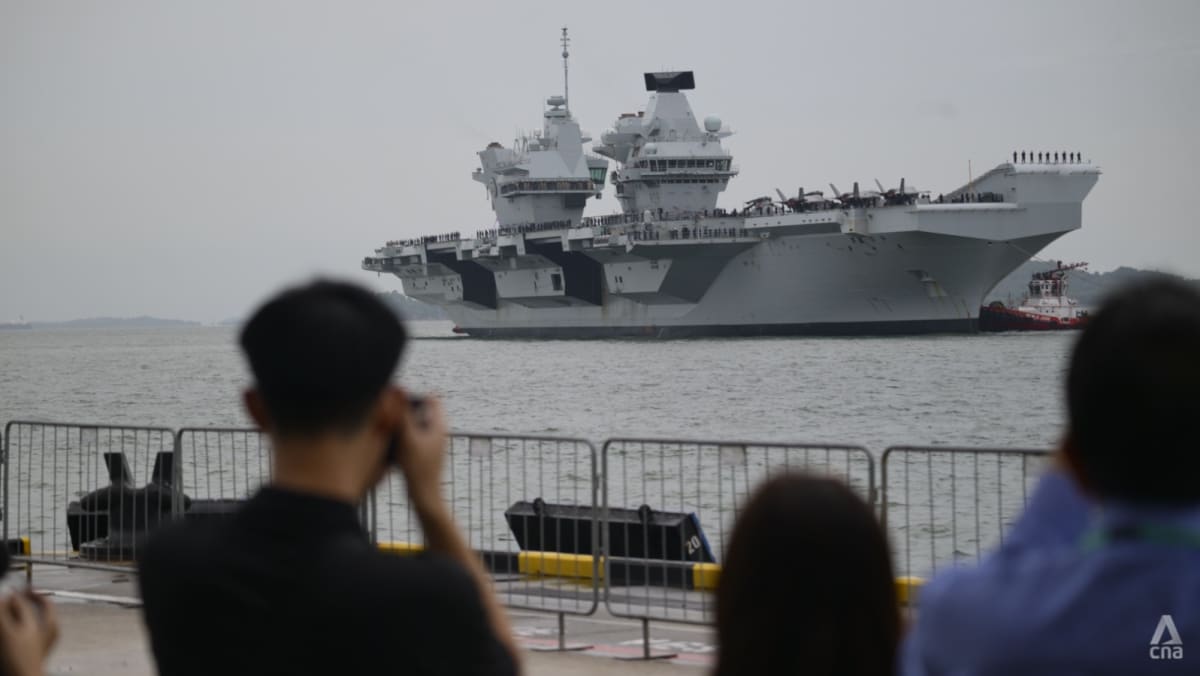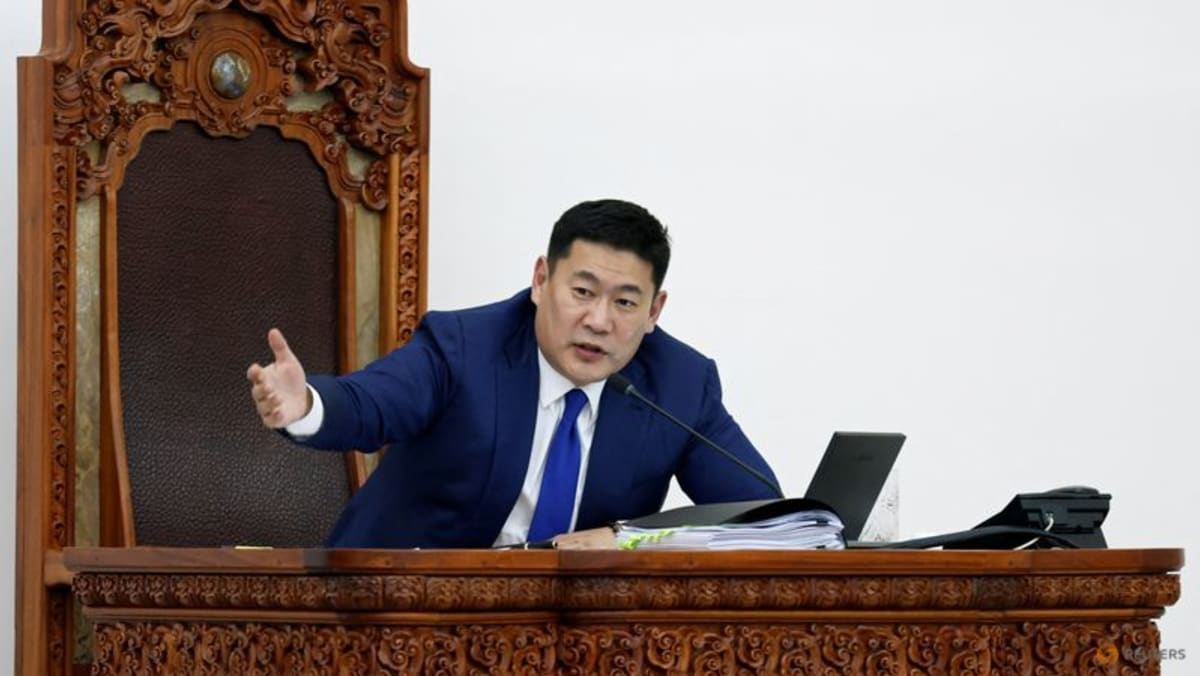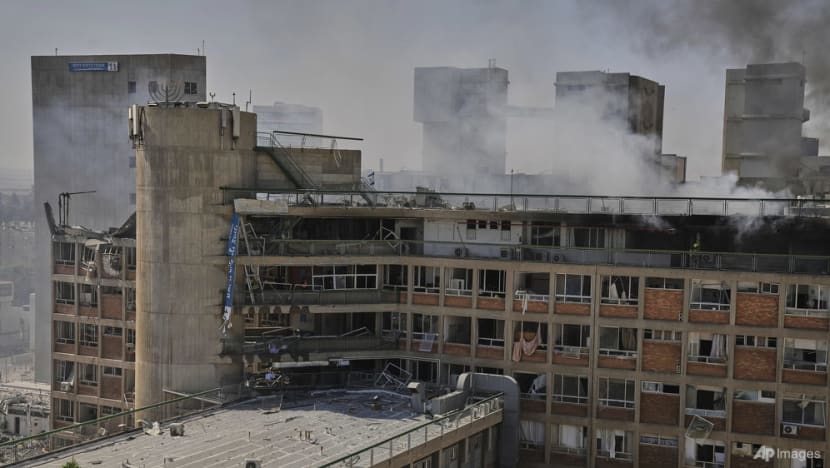
Smokes raises from a building of the Soroka hospital complex after it was hit by a missile fired from Iran in Be'er Sheva, Israel, Thursday, June 19, 2025. (Photo: AP/Leo Correa)
JERUSALEM: Israel struck a key Iranian nuclear site on Thursday (Jun 19) and Iranian missiles hit an Israeli hospital, as President Donald Trump kept the world guessing about whether the US would join Israel in air strikes seeking to destroy Tehran's nuclear facilities.
Prime Minister Benjamin Netanyahu, who has vowed to press on with Israel's biggest ever attack on Iran until his arch enemy's nuclear programme is destroyed, said Tehran's "tyrants" would pay the "full price".
His Defence Minister Israel Katz said the military had been instructed to intensify strikes on strategically related targets in Tehran to eliminate the threat to Israel and destabilise the "Ayatollah regime".
Netanyahu has said that Israel's military attacks could result in the toppling of Iran's leaders, and Israel would do whatever is necessary to remove the "existential threat" posed by Tehran.
A week of Israeli air and missile strikes against its major rival has wiped out the top echelon of Iran's military command, damaged its nuclear capabilities and killed hundreds of people, while Iranian retaliatory strikes have killed at least two dozen civilians in Israel.
The Israeli military said it targeted the Khondab nuclear reactor in Iran's Arak overnight, including its partially built heavy-water research reactor. Heavy-water reactors pose a nuclear proliferation risk because they can easily produce plutonium, which, like enriched uranium, can be used to make the core of an atom bomb.
The United Nations nuclear watchdog, the International Atomic Energy Agency (IAEA), said it had information that the heavy-water research reactor under construction there had been hit, but did not contain radioactive material. It had no information that a separate plant there, which makes heavy water, had been hit.
Israel's military said it also struck a site in the area of Natanz, which it said contains components and specialised equipment used to advance nuclear weapons development.
Iran has always denied planning to build an atomic weapon and says its nuclear programme is for peaceful purposes. Israel is widely presumed to have a nuclear arsenal of its own, though it does not confirm or deny this.
Iranian Foreign Ministry spokesperson Esmaeil Baghaei criticised UN nuclear watchdog chief Rafael Grossi and accused the IAEA of being a partner to an "unjust war of aggression" initiated by Israel.
In a post on X, Baghaei responded to an interview with CNN in which Grossi said there was no evidence of a systematic Iranian effort to develop nuclear weapons.
"This is too late, Mr Grossi," Baghaei wrote, adding that an IAEA resolution last week declaring Iran in breach of its obligations under the nuclear Non-Proliferation Treaty had been used as a pretext for Israel's strikes.
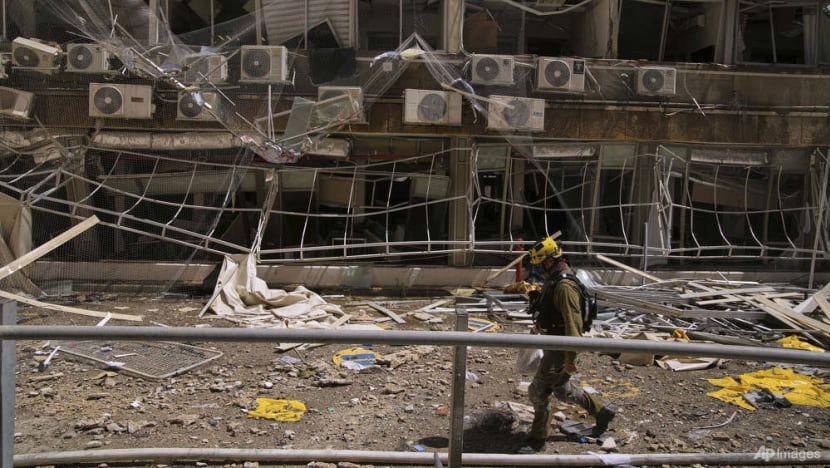 A firefighter walks past a damaged area at the Soroka hospital complex on Jun 19, 2025, after it was hit by a missile fired from Iran in Be'er Sheva, Israel. (Photo: AP/Leo Correa)
A firefighter walks past a damaged area at the Soroka hospital complex on Jun 19, 2025, after it was hit by a missile fired from Iran in Be'er Sheva, Israel. (Photo: AP/Leo Correa)
MISSILES DAMAGE ISRAELI HOSPITAL
On Thursday morning, several Iranian missiles struck populated areas in Israel, including a hospital in the southern part of the country, according to an Israeli military official.
Iran's Revolutionary Guards said they were targeting Israeli military and intelligence headquarters near Soroka medical centre in the city of Beersheba in the south of the country.
Israel's health ministry said several people sustained minor injuries, and that there was limited damage to the hospital’s emergency room and other buildings, which did not impair the hospital’s ability to operate.
The strike came four days after an Israeli missile strike damaged a hospital in Iran's western province of Kermanshah.
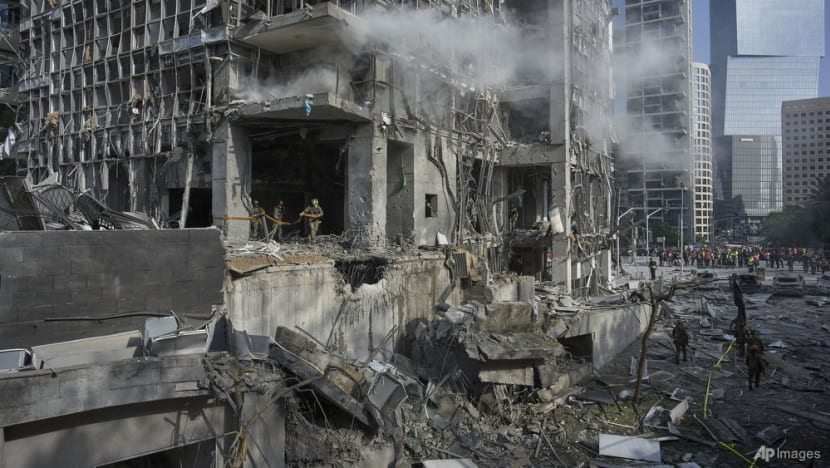 Rescue workers and military personnel inspect the site of a direct hit from an Iranian missile strike in Ramat Gan, Israel, on Jun 19, 2025. (Photo: AP/Oded Balilty)
Rescue workers and military personnel inspect the site of a direct hit from an Iranian missile strike in Ramat Gan, Israel, on Jun 19, 2025. (Photo: AP/Oded Balilty)
The week of Iranian missile salvoes marked the first time in decades of shadow war and proxy conflict that a significant number of projectiles fired from Iran have penetrated defences, killing Israelis in their homes.
Trails of missiles and interception efforts were visible in the skies over Tel Aviv, with explosions heard as incoming projectiles were intercepted. Israeli media also reported direct hits in central Israel.
Emergency services said five people had been seriously injured in the attacks and dozens of others hurt in three separate locations. People were still trapped in a building in a south Tel Aviv neighbourhood, they added.
Buildings were also extensively damaged in Ramat Gan, a key commercial hub home to high-rise towers, after a direct strike on a residential building in the neighbourhood east of Tel Aviv.
The blast caused significant damage to nearby residential buildings and shattered windows across the area.
“It's very scary,” said resident Yaniv, 34, who lives close to the building that was struck. He said he heard a deafening explosion when the missile hit, shaking his apartment tower.
The worst conflict between the two regional powers has raised fears that it will draw in world powers and further destabilise the Middle East.
Oil prices surged after Israel said it attacked Iranian nuclear sites overnight, as investors grapple with fears of a broader conflict that could disrupt crude supplies.
Israel, which has the most advanced military in the Middle East, has been effectively fighting on several fronts since the Oct 7, 2023, Hamas attack triggered the Gaza war. It has pounded Iran's regional allies, the Palestinian militant group Hamas in Gaza and Lebanon's Hezbollah, with fierce military campaigns and assassinations of their top leaders, and bombed Yemen's Houthis.
Speaking to reporters outside the White House on Wednesday, Trump declined to say if he had made any decision on whether to join Israel's air campaign. "I may do it. I may not do it. I mean, nobody knows what I'm going to do," he said.
Trump has said the war could end if Iran quickly agrees to sharp curbs on its nuclear programme. Tehran has said it will not negotiate while under attack. Nuclear talks between Washington and Tehran, due last Sunday, were cancelled.
In an effort to restart negotiations, the foreign ministers of Germany, France and Britain plan to hold nuclear talks with Iran's foreign minister Abbas Araqchi on Friday in Geneva, a German diplomatic source told Reuters.
Trump has veered from proposing a swift diplomatic end to the war to suggesting the United States might join it. On Tuesday, he mused on social media about killing Iran's Supreme Leader Ali Khamenei, then demanded Iran's unconditional surrender.


